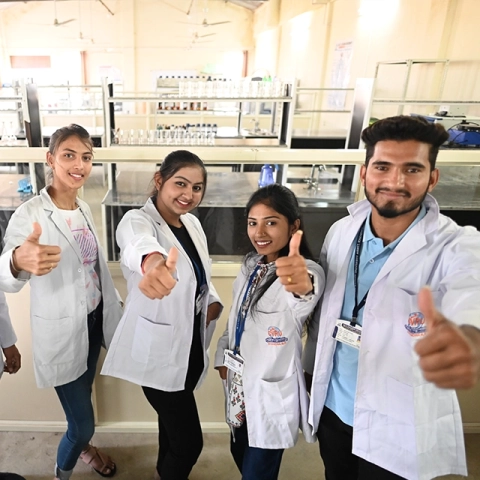The Bachelor of Pharmacy (B. Pharm) is a four-year undergraduate professional program designed to equip students with comprehensive knowledge of pharmaceutical sciences, drug formulation, and healthcare practices. The curriculum combines theoretical learning with hands-on laboratory training to develop essential industry skills. Students gain expertise in drug development, quality control, pharmacology, and patient care, while also exploring hospital pharmacy, regulatory affairs, and community health. Graduates are prepared for careers in pharmaceutical companies, clinical settings, drug research, and government health departments. With a strong academic foundation, they can also pursue higher studies or specialized fields such as pharmacovigilance and clinical research. This program is well-suited for those aspiring to contribute to the healthcare sector through medicine, research, and innovation.
Duration of programme
Level of Study

Drug formulation, analysis, design, and delivery
Pharmacology, toxicology, and clinical practice
Regulatory affairs, ethics, and pharmaceutical law
Industrial processes, biotechnology, and quality assurance
10+2 with PCB/PCM
from a recognised board